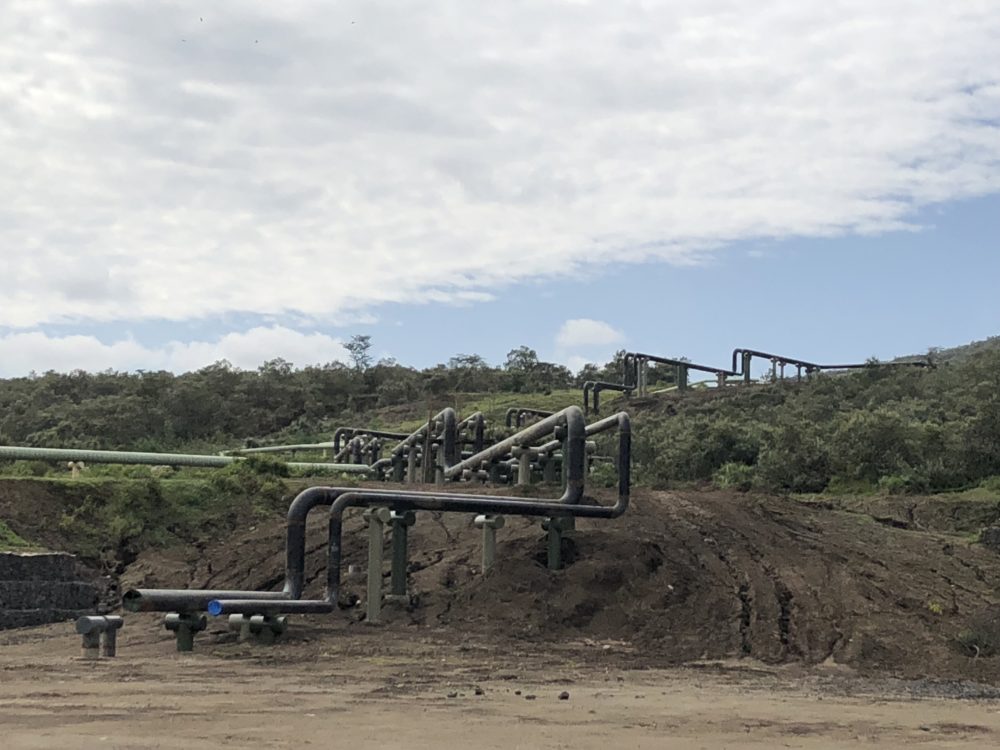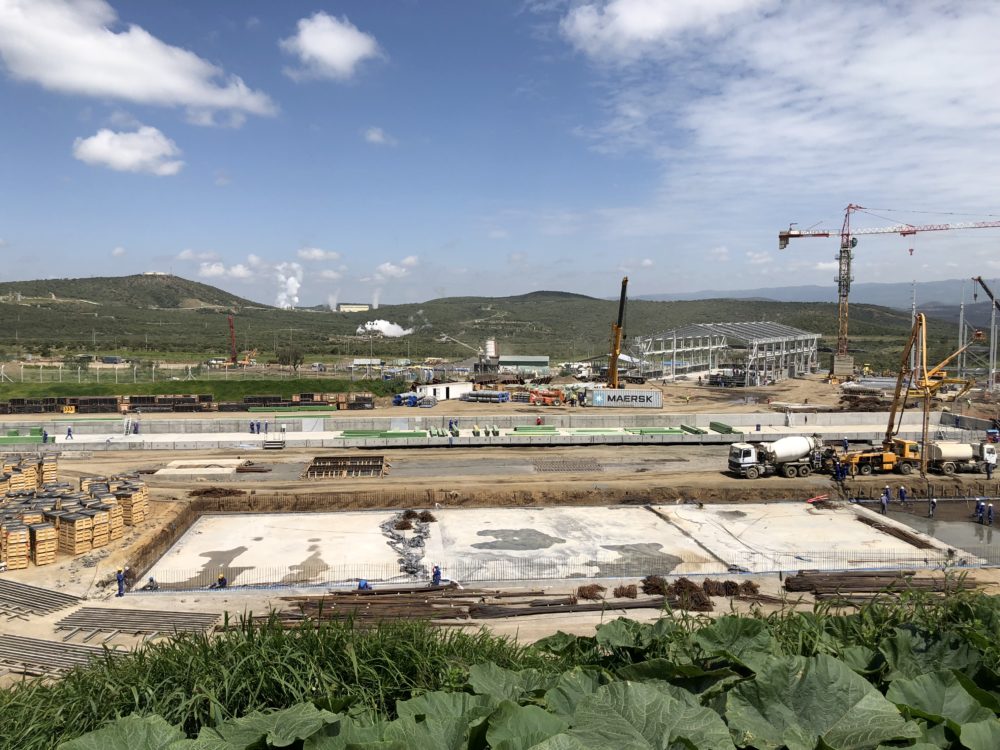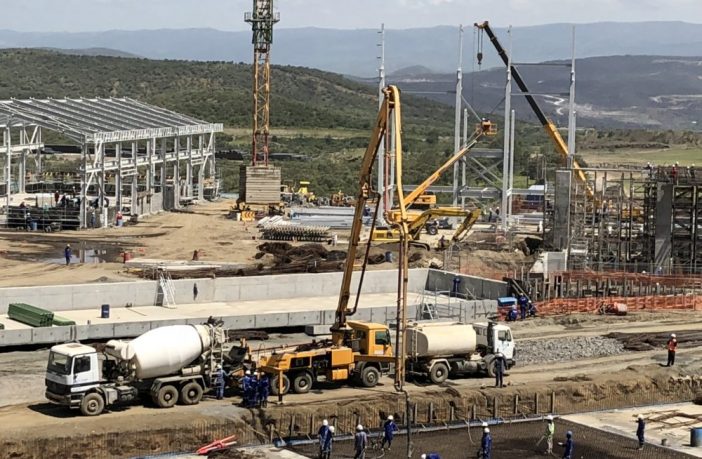- Kenya’s generation utility KenGen is on track to commission the Olkaria V geothermal power plant next month.
- The Olkaria V plant is set to operate in two units, each with a net capacity of 82.7 MW.
Construction of the power plant, which comprises two units, began in January 2017. The two units set to be commissioned next month were constructed by the Consortium of Mistubishi Corporation, Mitsubishi Hitachi Power Systems Ltd and H-Young & Company E.A Limited.
The project was divided into four lots- consultancy services, procurement and construction of steam field, engineering, procurement and construction of the power plant, engineering, construction and procurement of high voltage substations and transmission lines.

Pic: Olkaria V geothermal power plant under construction. Credit: Gesto Energy Consulting.
The US 450 million project involves gathering of steam from different wells through a piped network funnelling the vapour to the plant. Each unit will be supplied 500 tonnes of dry steam per hour at temperatures of about 270 degrees Celsius.
The turbines convert the steam to mechanical energy, which is then passed through a generator attached to it through the rotor to produce electricity. The generated power is then supplied to the national grid through the Suswa substation.

Pic: Olkaria V geothermal power plant under construction. Credit: Gesto Energy Consulting.
Kenya is regional powerhouse when it comes to geothermal energy production. The new plant is set to raise Kenya’s capacity of steam power injected into the grid to 855.4 MW from the current 690 MW. KenGen’s strategy focuses on increasing geothermal energy to meet the country’s growing electricity demand.
Kenya recently entered into an agreement to provide Ethiopia with geothermal drilling services. Read more
Author: Bryan Groenendaal
















1 Comment
Very good initiative